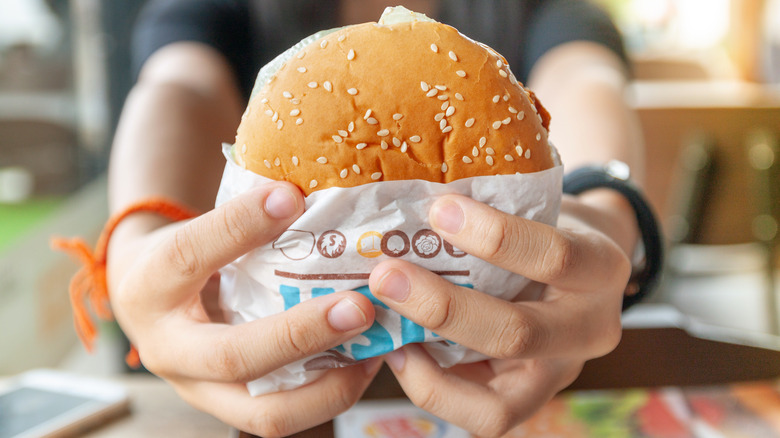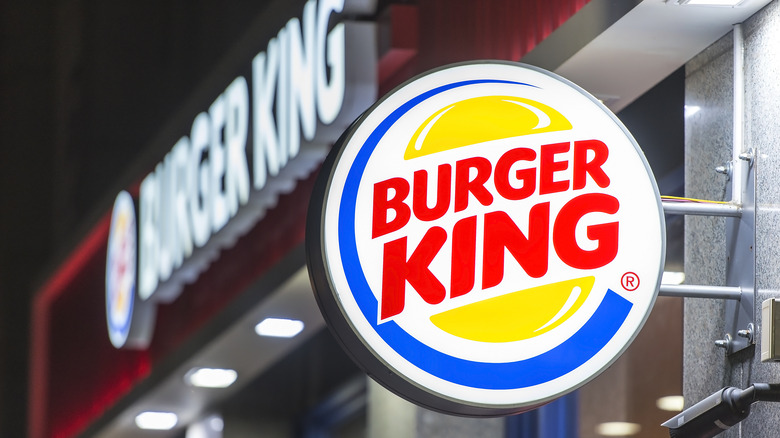Burger King Is Being Sued Over Its Sandwiches. Here's Why
When the Whopper Melt launched earlier this month, it initially received a royal welcome from Burger King's fanbase. The Takeout heralded the menu item as the replacement for the chain's iconic Whopper burger. That was three weeks ago.
Now, as The Seattle Times reports, consumers have filed a class action lawsuit against Burger King that states the advertising materials put out by the company overstate the size of its items — including the Whopper Melt. The suit argues that people have "suffered financial damages" because it was the size of the portrayed food that convinced them Burger King was a good deal. According to the suit, it wasn't always this way, but BK ads in the past few years depict burgers that have "increased in size by approximately 35%," while "the amount of beef" shown in said burger ads "increased by more than 100%."
While it will be a while until the lawsuit concludes, it does seem to genuinely reflect the feelings of some Burger King customers. "Super small, deceptive advertising, untoasted bun, unmelted cheese, costs more than 2 Whoppers," one Twitter user exclaimed about the the Whopper Melt. Another had a similar critique: "I ordered thinking because it is called Whopper it would be the size too. I was so disappointed."
Burger King has been accused of this before
It would be easy to dismiss this complaint as the grumblings of greedy, burger-craving customers. However, Burger King has previously received a slap on the wrist for doing the very thing of which the lawsuit accuses them.
In 2010, a British advertising watchdog discovered that Burger King lied about the Tendercrisp Chicken burger it was peddling almost a decade before the chicken sandwich wars were a thing. As The Daily Mail detailed, it was even suggested that Burger King purposefully used an actor with smaller hands in its marketing to make the burger seem bigger. The Advertising Standards Authority's summary read: "We purchased three Tendercrisp chicken burgers and noted the thickness of the burgers, the quantity of additional fillings – such as salad. The subsequent overall height of the product was considerably less than appeared in the ad." The group ultimately called for the ad to be banned.
So, it appears there is indeed a basis for the idea that Burger King has increased the advertised size of its items without changing their actual sizes. Now, we're left to wonder if the chain will face increased repercussions this time.

